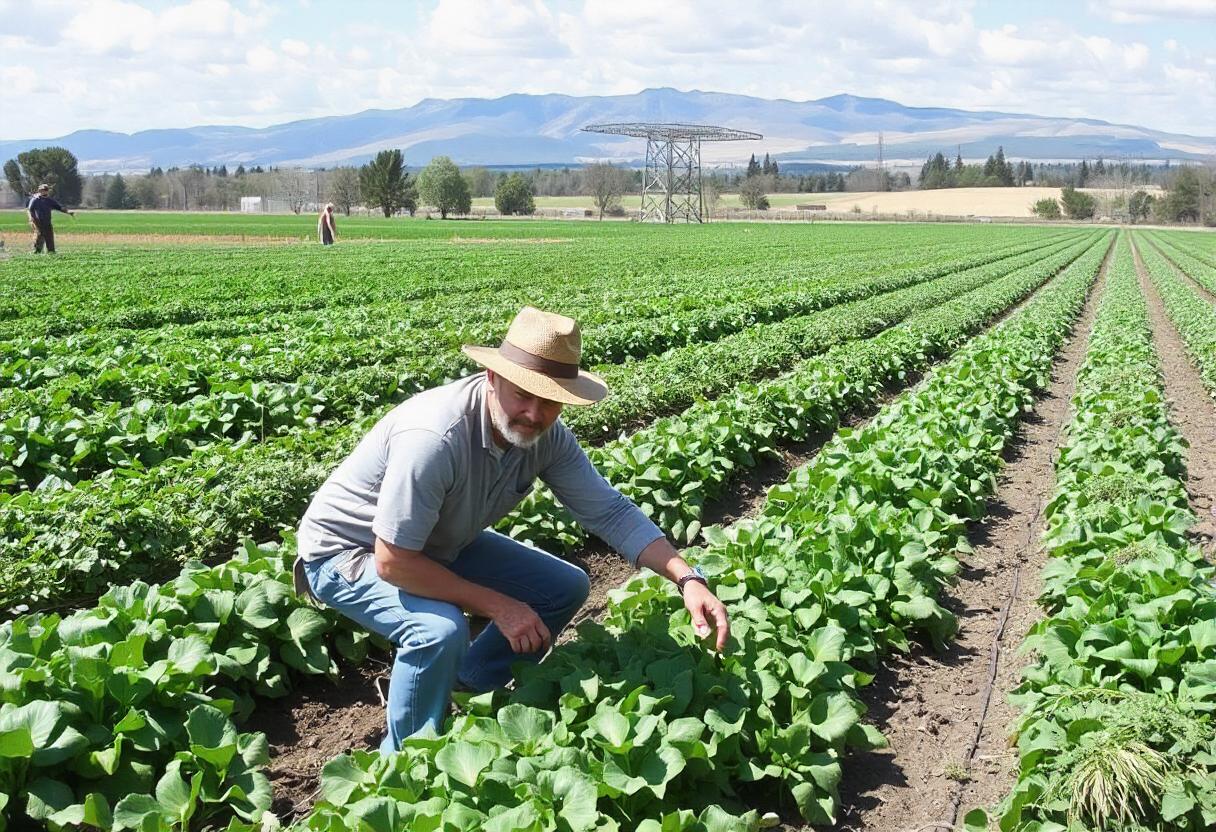
Organic agriculture is a farming system that relies on ecological processes, biodiversity, and cycles adapted to local conditions rather than the use of synthetic inputs like chemical fertilizers and pesticides. The practice focuses on sustainability, the health of the environment, and the well-being of the community. It has become increasingly popular as consumers become more conscious of the food they eat and the environmental impact of traditional farming methods.
The Principles of Organic Farming
Organic agriculture is based on a set of key principles that guide its practices. These principles include:
- Health: Organic farming emphasizes the health of the soil, plants, animals, and humans. It recognizes that they are all interconnected and that healthy soil leads to healthy food and, in turn, healthy communities.
- Ecology: Organic farming practices work with the natural environment, promoting biodiversity and ecosystem balance. By using natural methods of pest control and fertilization, organic farmers help maintain soil fertility and prevent the degradation of ecosystems.
- Fairness: Organic agriculture supports social fairness. It aims to provide equal opportunities for all participants in the farming process and ensure fair treatment of workers, consumers, and the natural environment.
- Care: Organic farming systems take a precautionary approach, using techniques that reduce the risk of harm to people and the environment. The goal is to minimize negative impacts while preserving future resources.
Techniques Used in Organic Agriculture
Organic farming employs a variety of techniques designed to enhance biodiversity and improve soil health without resorting to synthetic chemicals. Some of the most common methods include:
- Crop Rotation: This involves growing different types of crops in the same area across different seasons. It helps in pest management, improves soil fertility, and reduces the risk of crop diseases.
- Composting: Organic farmers often rely on composting to recycle organic waste and create nutrient-rich soil amendments. This practice returns valuable nutrients to the soil, improving its structure and fertility.
- Biological Pest Control: Instead of chemical pesticides, organic farmers use natural predators, insects, and microorganisms to control pests. This reduces the environmental impact and ensures that no harmful residues end up in food.
- Cover Cropping: Cover crops like clover, rye, and legumes are grown during the off-season to protect and nourish the soil. They prevent soil erosion, suppress weeds, and add essential nutrients such as nitrogen.
- Animal Integration: Livestock is often integrated into organic farming systems, where their manure is used as a natural fertilizer. In turn, animals benefit from access to organic feed and open spaces, promoting animal welfare.
Benefits of Organic Agriculture
Organic farming offers numerous benefits to both the environment and society.
Environmental Impact: One of the primary advantages of organic farming is its minimal environmental footprint. It reduces pollution by eliminating the use of synthetic pesticides and fertilizers, which can contaminate soil and water. Organic practices also enhance soil structure, promote water retention, and reduce erosion. This contributes to long-term soil fertility and resilience to climate change.
Biodiversity: Organic farms tend to have higher levels of biodiversity compared to conventional farms. They encourage a variety of crops and livestock, promoting healthier ecosystems and providing habitats for a range of wildlife. This biodiversity also helps with pest control, reducing the need for external inputs.
Healthier Food: Organic farming produces food without synthetic chemicals, making it safer for human consumption. Some studies have suggested that organic produce may contain higher levels of certain nutrients, such as vitamins and antioxidants, compared to conventionally grown counterparts. The absence of pesticide residues further adds to the appeal of organic food for health-conscious consumers.
Economic and Social Benefits: Organic farming can also support local economies by encouraging small-scale and family-run farms. Many organic farmers sell directly to consumers through farmers’ markets or community-supported agriculture (CSA) programs, creating closer relationships between growers and consumers. Organic agriculture also creates jobs and contributes to rural development, helping to sustain communities.
Challenges in Organic Agriculture
Despite its many benefits, organic farming faces several challenges that can hinder its widespread adoption.
One of the main challenges is lower productivity. Organic farming typically yields less than conventional farming because it does not rely on synthetic fertilizers and pesticides. As a result, it requires more land to produce the same amount of food. This can be a concern in regions with limited farmland.
Another significant challenge is higher labor costs. Organic farming is labor-intensive, requiring more hands-on management for practices like crop rotation, composting, and pest control. This can lead to higher costs for farmers, which may be passed on to consumers in the form of more expensive organic products.
Finally, organic farmers face difficulties with market access and certification. Obtaining organic certification can be costly and time-consuming, especially for small-scale farmers.